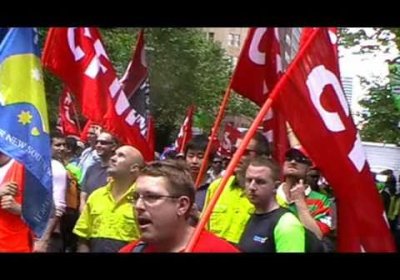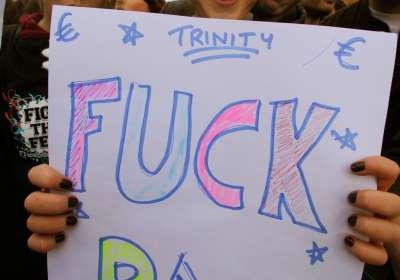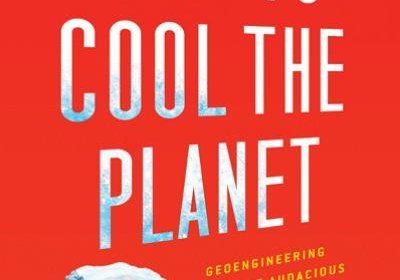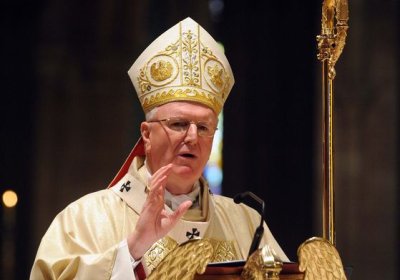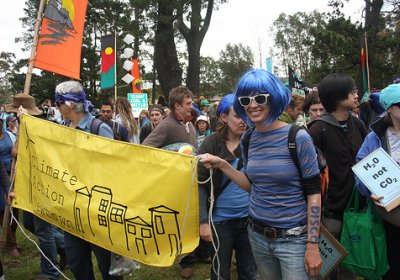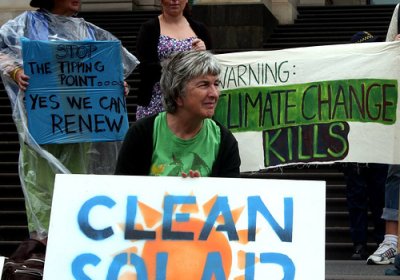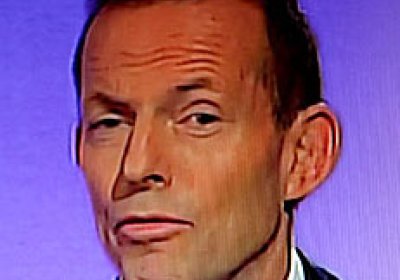NUMSA supports the decision taken by Mine Line workers to take-over and run the company since it was long placed under curatorship.
The Mine Line company is based in Doornkop, and produces valves for mining machines. Out of fear of paying workers decent wages, its owner Waynerd Mulder declared the company bankrupt in August after reaping the profits generated through the sweat and blood of workers.
As a result of this melodrama by Mulder, workers were hardest hit by the company’s non-operation and lost their earnings in the midst of the escalating cost of living in our country.
860
On November 3, 2010 construction workers marched through Sydney CBD for a decent site allowance and conditions in the $6 billion-dollar Barangaroo development on Sydney's former wharves (the legendary "Hungry Mile").
About 25,000 students took to the streets of Dublin on November 3 in protest at plans to increase college registration fees, MorningStarOnline.co.uk said. Many protesters wore T-shirts calling for “Education, not emigration”, referring to a recent surge of young people leaving Ireland with its double-digit unemployment for opportunities abroad, from Canada to Australia.
Campaign group Safe Climate Perth reached the milestone of 2000 signatures on its no new coal petition on October 30.
The petition calls for WA's parliament to stop to expansion of coal-fired power stations, mines and related infrastructure, and to fund a roll-out of renewable energy with priority access to the new jobs, with equivalent conditions, given to coal communities.
The petition was launched on October 10, and Safe Climate Perth has embarked on an energetic effort to reach 10,000 signatures by Human Rights Day.
King Brown Country: The Betrayal of Papunya
by Russell Skelton
260 pages
Allen & Unwin
$35
REVIEW BY MAT WARD
The Northern Territory community of Papunya is known worldwide for its Aboriginal art. But this book by Melbourne Age reporter Russell Skelton paints a very different picture of it.
Papunya, says Skelton, is "a metaphor for all that has gone wrong with Indigenous policy since the 1970s". He says former prime minister Gough Whitlam's policy of self-determination for Aboriginal communities in the 1970s was "unworkable and unsustainable".
McKillop’s real miracle
For those of us in solidarity with East Timor, now Timor Leste, the real miracle is the work of Mary McKillop East Timor, with its people, notably Sr Josephine Mitchell and Sr Susan Conelly. They and others in MMET have done miracles in literacy in Timor, honouring the indigenous Tetum language.
How to Cool the Planet: Geo-engineering & the Audacious Quest to Fix Earth's Climate
By Jeff Goodell
Scribe, 2010
262 pages, $35 (pb)
Grandiose schemes to launch sulphate particles into the stratosphere, to dump iron into the oceans and to brighten clouds in order to moderate global warming are, says Jeff Goodell in How to Cool the Planet, maturing from the dodgy geo-engineering dreams of mad scientists to mainstream policy options.
More than 100 Palestine solidarity activists gathered in Melbourne over October 29-31 for Australia's first national BDS conference.
Palestinian civil society groups called for boycott, divestment and sanctions (BDS) against Israel five years ago. The BDS campaign demands an end to the Israeli occupation of Palestine, the dismantlement of the separation wall in the West Bank, equal rights for Palestinian citizens of Israel, and the right of return for Palestinian refugees.
Melbourne Catholic Archbishop Denis Hart is at it again. In 2004, he told a woman who had been sexually abused by a priest to “go to hell, bitch”. In 2009, he unsuccessfully attempted to pressure Father Bob Maguire, a progressive Melbourne icon, to retire from his local parish.
Helensburgh is not renowned for climate activism. A coalmining town, Helensburgh was established around the Metropolitan colliery, Australia's oldest continually operating coal mine, in the 1880s.
The coal transnational Peabody Energy, which owns the Metropolitan, sponsors local activities such as school sporting teams and community fairs.
However, 35 people attended a climate-focused public meeting in the NSW south coast town on November 2.
The NSW government has decided to cut the solar photovoltaic feed-in tariff from 60 cents per kilowatt hour (kW/h) to 20 cents per kW/h.
The October 27 announcement came after the tariff received a strong uptake, particularly in Sydney’s western suburbs and rural NSW. The total capacity once remaining orders are connected will be around 193 megawatts (MW).
The Greens and the Australian Manufacturing Workers Union (AMWU) slammed the decision to axe the tariff.
Federal government plans to convert vacant army housing at Inverbrackie, near the Adelaide Hills town of Woodside, for 400 asylum seekers in family groups have divided the local community.
On November 3, opposition leader Tony Abbott met with about 150 local residents, most of whom were opposed to the government plans. Abbott told those gathered that Woodside “is an open and welcoming community”.
- Previous page
- Page 3
- Next page

